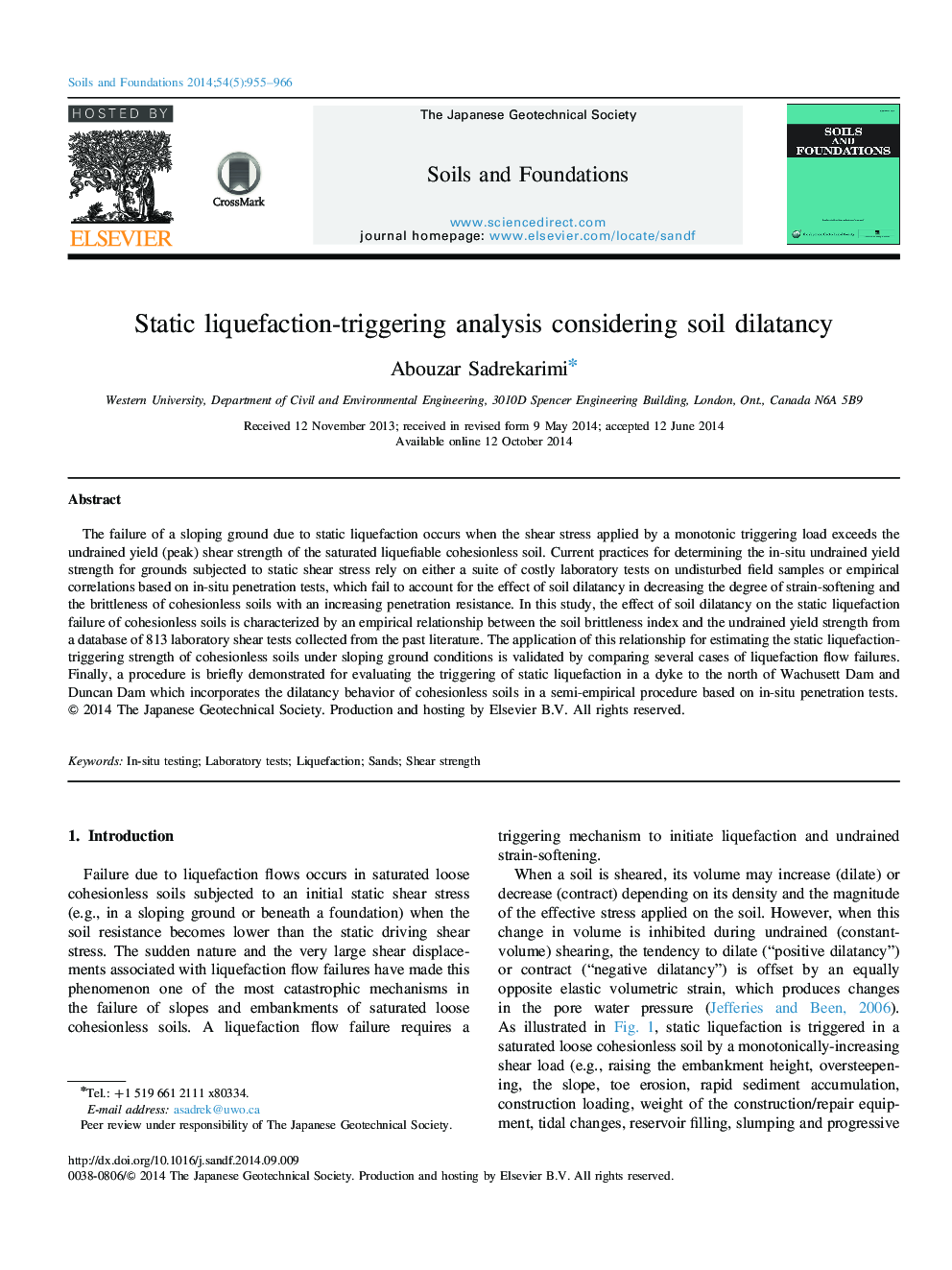| کد مقاله | کد نشریه | سال انتشار | مقاله انگلیسی | نسخه تمام متن |
|---|---|---|---|---|
| 307152 | 513341 | 2014 | 12 صفحه PDF | دانلود رایگان |
The failure of a sloping ground due to static liquefaction occurs when the shear stress applied by a monotonic triggering load exceeds the undrained yield (peak) shear strength of the saturated liquefiable cohesionless soil. Current practices for determining the in-situ undrained yield strength for grounds subjected to static shear stress rely on either a suite of costly laboratory tests on undisturbed field samples or empirical correlations based on in-situ penetration tests, which fail to account for the effect of soil dilatancy in decreasing the degree of strain-softening and the brittleness of cohesionless soils with an increasing penetration resistance. In this study, the effect of soil dilatancy on the static liquefaction failure of cohesionless soils is characterized by an empirical relationship between the soil brittleness index and the undrained yield strength from a database of 813 laboratory shear tests collected from the past literature. The application of this relationship for estimating the static liquefaction-triggering strength of cohesionless soils under sloping ground conditions is validated by comparing several cases of liquefaction flow failures. Finally, a procedure is briefly demonstrated for evaluating the triggering of static liquefaction in a dyke to the north of Wachusett Dam and Duncan Dam which incorporates the dilatancy behavior of cohesionless soils in a semi-empirical procedure based on in-situ penetration tests.
Journal: Soils and Foundations - Volume 54, Issue 5, October 2014, Pages 955–966
